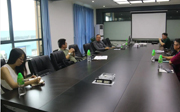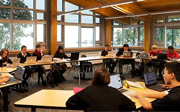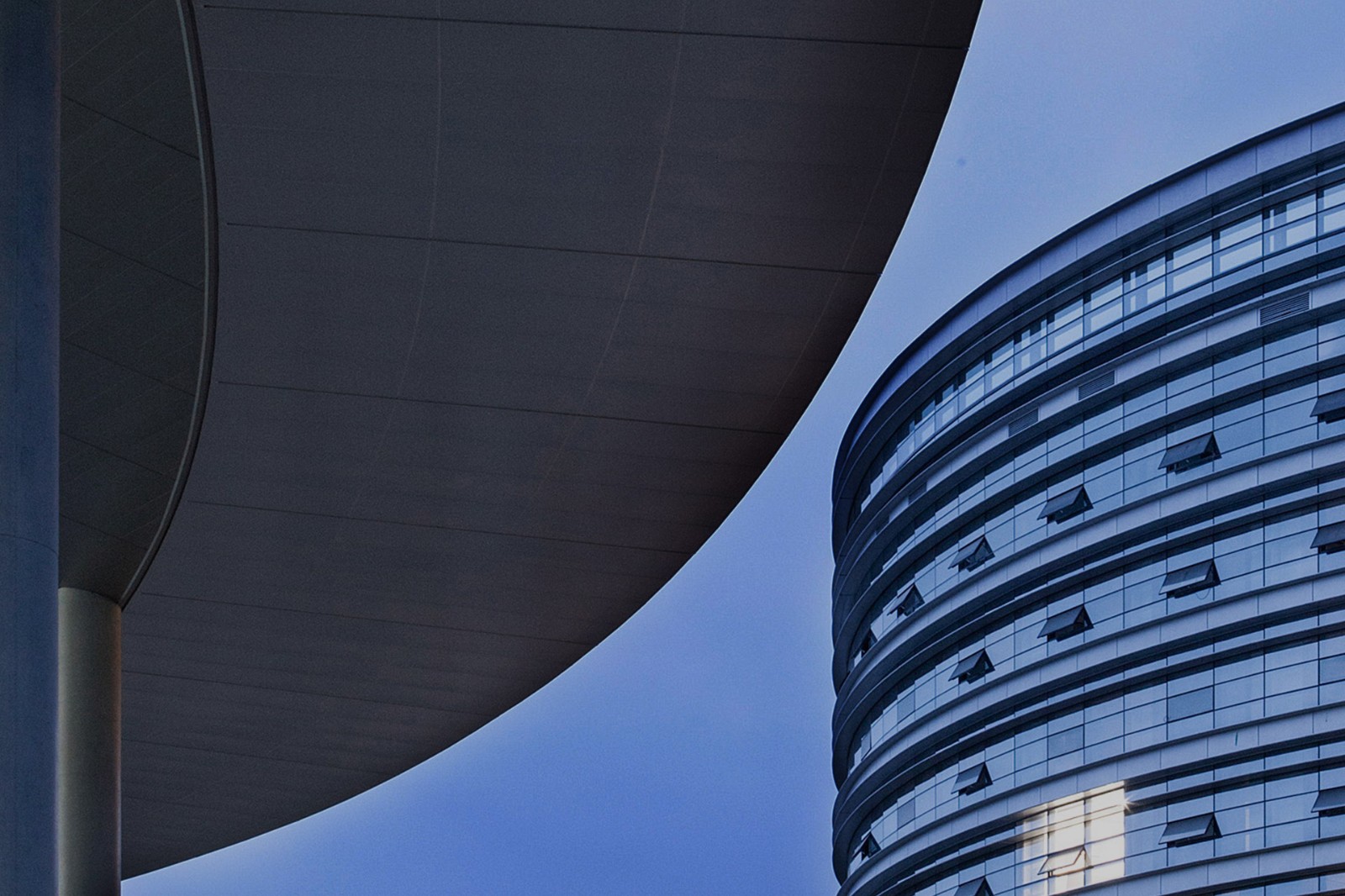可口可乐公司简介 |
可口可乐(Coca-Cola)是世界最大的软饮料公司。公司总部设在美国亚特兰大。1989年资产额82.825亿美元,雇佣职工2万多人。可口可乐公司1919年9月5日在美国特拉华州成立。1960年进入美国最大的100家工业公司的行列;1983年居第48位。1960~1983年,该公司的销售额、资产额和净收入的年均增长率分别为12.2%、11.5%和12.3%。
可口可乐公司制造和分配浓缩软饮料和果汁,它的产品可口可乐是从可口和可乐两种植物的叶子和果实中取出液汁制成的一种饮料。作为该公司主要部门的软饮料每年的销售额约占公司总销售额的80%。软饮料产品占公司总利润的88%。可口可乐美国公司(CoCa-Cola USA)是可口可乐公司最大的销售商;该公司食品部制造和销售冷冻、浓缩柑橘和各种果汁、柠檬晶、咖啡和茶。酒类部门生产和销售各种牌号的酒,主要销于国内市场,是美国第四家最大的酒类生产和销售者;该公司还生产塑料薄膜以及其他消费产品如防臭剂、湿手巾纸等。
可口可乐公司是举世闻名的汽水大王,它在全球各地有500余种产品销售,其中可口可乐、健怡可口可乐、雪碧、芬达四大品牌 在全球最畅销汽水前5位中独占4位。Coca-Cola广告遍天下。该公司重视国际市场,在外国就地制造,就地销售,获取厚利。1981年,该公司在国外的销售额占公司总销售额的62%,销售活动分布在145个国家和地区。在饮料、食品和其他方面,该公司在国外拥有8家子公司。在国外的装瓶厂子公司有15家 ,在美国特拉华州的2家子公司——可口可乐国际公司和可口可乐出口公司,参加可口可乐公司的出口活动。
可口可乐早在1927年就在中国天津、上海建立瓶装厂,1979年随着中国改革开放,重返中国市场,自1981 年起先后在北京、大连、南京、西安、武汉、杭州、广州等地建立合资瓶装企业,并于1988年在上海建立可口可乐浓缩液厂,除使中国大陆装瓶厂摆脱使用进口浓缩液外,还出口东南亚。
可口可乐验厂标准 |
TCCC可口可乐验厂标准就是The coca cola company-可口可乐验厂标准。可口可乐的验厂结果分为绿灯,黄灯,橙灯,红灯。评判上和沃尔玛类似,分数和评判级别如下:
绿色(0)符合 |
黄色(1-7)需要采取纠正措施和自我查证 |
橙色(8-27) 需要采取纠正措施和可能要接受跟踪评估 |
红色(27+) 需要采取纠正措施和跟踪评估 |
注意:可口可乐针对不同的供应商等级,有不同的验厂要求。有的工厂会被要求验品质,即质量管理体系。 |
1、如果帮可口可乐做包装会按照食品级的标准来验厂,难度极大,对卫生和GMP有很高的要求。 |
2、如果是做礼品、服装之类的产品就是一般的品质标准。 |
可口可乐验厂审核内容 |
Code of ConductAssessment Checklist 1.强迫劳动 Forced Labor强迫劳动 | 1.1Does the factory have a copy of valid laws and regulations on forced labor or understand its requirements? 关于强迫劳动的法律文本 |
1.2Are all workers present voluntarily at the factory? 都是工人在工厂目前的自愿上班? | |
1.3Are workers free to leave after working hours? Is any restriction placed?员工离开工作小时后有空吗?任何限制吗? | |
1.4Are workers permitted time-off with doctor’s certificate when sick or for maternity? 是工人允许补假,当生病或产科医生的证明? | |
1.5Is any evidence of physical or verbal abuse identified? Whether use of force observed, at least for overtime work? 有无体罚?打骂? | |
1.6Do all workers sign employment contracts with the factory? Is it unfair or illegal? 所有工人与工厂签订劳动合同吗?这是不公平的或非法吗? | |
1.7Is any evidence identified that security guards were used to coerce workers ? 任何证据发现,保安被用来迫使工人吗? | |
1.8Are workers not required to lodge deposits or original documents such as ID papers, training certificate, etc.?有押金?押身份证吗? | |
1.9Is any physical method impeding freedom of workers such as surveillance camera, locked exit during working hours or perimeter fences, etc? 工作时有闭路电视等监督吗? | |
1.10Is any evidence identified on the use of forced labor / prison labor? 任何证据确认使用强迫劳动/监狱劳动呢? | |
2. 童工 Child Labor | 2.1Does the factory have a copy of valid laws and regulations on child labor OR understand its requirements? What is the legal Youngest age of workers? 工厂是否有关于童工的有效法律法规或了解其要求?工人的法定最小年龄是多少? |
2.2Does the factory have a copy of valid regulations and laws on young worker protection OR understand its requirements?工厂是否有关于青年工人保护的有效法规和法律的副本,或者了解其要求? | |
2.3Does the factory have effective procedures to verify the age of worker at the time of recruitment? 工厂是否有有效的程序来验证员工招聘时的年龄吗?有无核对工人年龄的程序。 | |
2.4Does the factory keep adequate age documents of workers such as ID copies and personnel records? 工厂是否保留足够的工人年龄文件,如身份证复印件和人事记录? | |
2.5Is separate register maintained for child labor / young workers? 童工/年轻工人是否有单独的登记簿? | |
2.6Is any evidence identified that child labor was employed at the factory?有任何证据发现童工在工厂工作吗? | |
2.7Does the youngest age of workers at the factory Comply with local legal requirements? 工厂最年轻的工人年龄符合当地法律要求吗? | |
2.8Does the factory have effective remediation programs existing for child labor (where appropriate)?工厂是否有有效的补救程序现有的童工(在适当的地方)? | |
2.9Is child remediation program monitored by the labor ministry / UNICEF / ILO (where appropriate)?由劳动部儿童补救计划监控/联合国儿童基金会/国际劳工组织(在适当的地方)? | |
2.10Are suspected young worker age records such as age certificate, local records or certificate from surgeon verified?被怀疑年轻的工人年龄记录,比如年龄证书,从外科医生验证本地记录或证书? | |
2.11Are children or young workers engaged in hazardous work?儿童或年轻工人从事危险的工作吗? | |
2.12Are children or young workers employed at night shift?儿童或年轻工人上夜班吗? | |
2.13Does the factory implement any work experience/ apprenticeship scheme for school age children?工厂是否为学龄儿童实施任何工作经验/学徒计划? | |
2.14Are above findings confirmed through interview with workers? 通过对工人的采访,上述发现得到证实了吗? | |
3. 健康与安全 Health and Safety | 3.1Does the factory have a copy of valid laws and regulation on health and safety or understand its requirements?工厂有一份有效的健康和安全法律法规或了解其需求? |
3.2Is written health and safety policy posted and signed by top management?有无健康安全政策贴在现场吗? | |
3.3Is safety committee established with members representing the various shifts, functions and levels?该委员会应有不同班次,不同岗位,不同层次的人员参加? | |
3.4Is a senior management representative for health & safety appointed? If yes please specify the title.有无健康安全代表吗? | |
3.5Does the factory arrange health and safety training for new workers?工厂安排新员工健康和安全培训? | |
3.6Are training and awareness programs on health and safety arranged regularly for all workers? 是否定期为所有工人安排健康和安全培训和提高认识的计划? | |
3.7Are accidents reported and recorded? 事故是否有报告和记录? | |
3.8Does the factory keep injury / illness records such as daily injury and illness log, injury statistics, illnesses report or any other safety statistics?工厂保持受伤/疾病记录日志,如日常伤害和疾病损伤统计,疾病报告或其他安全统计数据吗? | |
3.9Are corrective actions taken to prevent recurrence of work related accidents?是否采取了纠正措施,以防止复发与工作相关的事故? | |
3.10Does the factory have valid fire inspection certificates issued by local fire service authority? 工厂是否有当地消防部门颁发的有效消防检查证书? 3.11Does the factory have adequate number of fire extinguishers at each factory floor? 工厂每个车间都有足够数量的灭火器吗? | |
3.12Are all fire extinguishers inspected and tested regularly and ready to use at all times? 所有灭火器是否定期检查和测试,并随时准备使用? | |
3.13Is an effective fire extinguishing system i.e. fire hydrant/fire hose or sprinkler installed at each factory floor and maintained properly? 有效的灭火系统,即消防栓/消防软管或洒水器是否安装在每个工厂楼层并得到适当维护? | |
3.14Are all fire extinguishing systems inspected and maintained properly?所有灭火系统检查和维护正常吗? | |
3.15Is fire and hazard early warning system such as smoke detector installed and regularly tested?是火和烟探测器等风险预警系统安装和定期测试? | |
3.16Are fire drills conducted regularly at least once a year? When and how?定期进行消防演习每年至少一次? | |
3.17Are fire exits and escape routes adequate at each factory floor?消防出口和逃生路线足够在每个工厂吗? | |
3.18Is any fire exit and escape route blocked or locked? Is any slide door used at the factory?安全出口和疏散路线阻塞或锁吗?是在工厂使用的滑动门吗? | |
3.19Are exits and fire exits identified with sign or indicator lamps?出口和消防出口识别标志或指示器灯吗? | |
3.20Are adequate emergency lights installed at each factory floor?适当的紧急停车灯安装在每个工厂? | |
3.21Is the factory no more than 5 minutes away by fire engine from nearest fire station?1最近的消防站离厂区在5分钟内能到吗? | |
3.22Did any fire accident take place in the past 12 months at the factory?12个月内发生过火灾吗? | |
3.23Does the factory have valid inspection certificates for boilers, elevators, pressure vessels and other equipment per local regulation?工厂是否有有效的检验证书的锅炉,电梯,压力容器证书吗? | |
3.24Are the operators of above-mentioned equipment trained and qualified per local regulation?锅炉,电梯,压力容器操作员证书吗? | |
3.25Are adequate guarding or devices installed for moving/rotating parts of machine, pulleys and belts or any other dangerous parts of machines?设备安全保护装置合适吗? | |
3.26Is any instruction emphasized to prohibit loose clothing, jewellery or long hair near moving machinery?员工保护指引:如不带首饰,长发应盘起来等等。 | |
3.27Are all electricians, welding operators and forklift drivers etc. trained and qualified per local regulations?电工,叉车工,电焊工有证书吗? | |
3.28Is electrical safety procedures implemented effectively to ensure safety precautions such as grounding, discharging, and testing to be taken?电气安全规程实施有效地确保接地等安全措施,卸货,并测试了吗? | |
3.29Are all the electrical wires installed in fully acceptable condition and adequately protected?所有的电线安装在完全可接受的条件和充分的保护? | |
3.30Are electrical installations are checked periodically and repairs carried out by competent electrician?定期检查电气安装和维修由合格的电工吗? | |
3.31Is hot work permit procedure implemented for welding, cutting and open flame operation at the factory?热工作许可证程序实现对焊接、切割和明火操作在工厂吗? | |
3.32Are all site buildings maintained in good condition in both physical surface and structure?所有站点建筑维护状况良好物理表面和结构? | |
3.33Are dangerous/hazardous substances used or stored at the factory?化学品存放安全吗? | |
3.34 Are these substances safely and securely stored? 这些物质储存安全吗? | |
3.35Are administration and engineering controls (reduced shift hours, ventilation fans and exhaust fans) introduced to reduce personal exposure?管理和工程控制(减少转移时间,通风设备和排气风扇)介绍了减少个人接触吗? | |
3.36Are personal protective equipment (PPE) such as goggles, glasses, gloves, earplug / muff, boots, or protective clothing provided at factory cost and in fully acceptable condition? PPE个人防护装备(PPE)如眼镜、眼镜、手套、耳塞/套,靴子,或提供防护服在工厂成本和完全可接受的条件?个人防护用品 | |
3.37Is air quality test done if hazardous fumes existed?空气质量经过测试吗? | |
3.38Does the factory have a suitable working environment in respect of ventilation, temperature, lighting, cleanliness, and tidiness (overcrowding)?工厂可有一个合适的工作环境的通风,温度,照明,清洁,和整洁(不拥挤)? | |
3.39Does the factory arrange regular health examination for workers exposed to hazardous environment?危害工位员工是否定期体检? | |
3.40Are there adequate evidences confirming that the workers’ health is not affected by hazardous factors?是否有足够的证据证实工人健康不受有害因素的影响? | |
3.41Does the factory have any occupational health inspection certificate issued by local government authority?工厂有没有职业卫生检验证书出具当地政府权威吗? | |
3.42Are adequate first aid kits located at each factory floor and marked with signs? 每个工厂是否都有足够的急救包,并标有标志? | |
3.43Are adequate workers trained on first aid? How many trained first aiders at the factory? 是否有足够的急救人员接受过培训?工厂里有多少受过训练的急救人员? | |
3.44Is an in-house clinic/first aid station established with competent doctor/first aider employed at the factory?有一个内部诊所/急救站建立与主管医生/急救人员在工厂工作吗? | |
3.45Is a nearby medical centre/hospital/clinic available to factory?是附近的一个医疗中心/医院/诊所提供给工厂吗? | |
3.46Is potable water accessible and adequate at each factory floor?是饮用水和适当的在每个访问工厂吗? | |
3.47Are lavatory facilities accessible, clean and reasonable in number at each factory floor? Does it meet local requirements? 每个工厂的厕所设施是否无障碍、干净且数量合理?它符合当地要求吗? | |
3.48Toilets are private and segregated for men and women?厕所是私人的,男女分开? | |
3.49Are washbasins and water taps available? Adequate?脸盆和水龙头?足够吗? | |
3.50Are the factory kitchen and canteen clean and hygienic with adequate facilities?工厂厨房和食堂干净和足够的卫生设施吗? | |
3.51Are kitchen and canteen subject to local government licensing? If yes, does the factory have such a permit or license?是厨房和餐厅受到当地政府的许可?如果是,工厂有这样的许可证或执照吗? | |
3.52Are adequate evidences identified that workers working in kitchen are suitable to food service? Such as health examination.是足够的证据发现,工人们在厨房工作适合食品服务吗?如健康检查。 | |
3.53Is there any food safety program established to ensure all the food and stuffs purchased from reliable sources?是否有建立食品安全计划,以确保所有的食物和东西从可靠的来源购买吗? | |
3.54Is any pest control program established and implemented effectively?是害虫控制程序建立和实施有效吗? | |
3.55What is the average dormitory space per worker? How many workers per room? Does it meet with local norms and standards?平均每个工人的宿舍空间是什么?有多少工人每房间吗?会见当地规范和标准吗? | |
3.56Is there adequate living space for each worker and meet the requirements of relevant local regulations?为每个工人有足够的生存空间和满足当地有关规定的要求? | |
3.57Are recreation areas available at the factory?娱乐区域的工厂吗? | |
3.58Are kitchen, laundry facilities available in dormitory? 宿舍里有厨房和洗衣设施吗? | |
3.59Is there an adequate supply of sanitary drinking water available to workers at adequate distance at dormitory?有一个可用的卫生饮用水充足供应工人在宿舍在适当的距离吗? | |
3.60Are there adequate toilets with hand basins available to workers at adequate distance at dormitory?提供给工人有足够的厕所用手盆在适当的距离在宿舍吗? | |
3.61Are there adequate bathrooms available to workers at dormitory?有足够的浴室提供工人宿舍吗? | |
3.62Are sanitary areas clean and hygienic with available washing facilities?卫生区域清洁和卫生,可用洗设施吗? | |
3.63 Are the dormitory clean, safe and well lit?宿舍的清洁、安全、点燃? | |
3.64Are workers free to exit & re-enter dormitory freely? Are any curfew hours set?员工自由退出和重新进入宿舍有空吗?有宵禁时间设置吗? | |
3.65Are adequate security measures provided to protect workers at dormitory?提供适当的安全措施来保护工人在宿舍吗? | |
3.66Do the dormitory buildings appear structurally sound and in acceptable repair?做宿舍建筑结构出现声音和接受修理吗? | |
3.67Are dormitory exits unblocked and unlocked for emergency evacuation?宿舍出口畅通,为紧急疏散解锁吗? | |
3.68Are written dormitory rules posted? (if yes please attach copy)编写宿舍规则发布?(如果是请附上副本) | |
3.69 Are fire emergency evacuation plans posted at dormitory and understood by all workers?消防紧急疏散计划张贴在宿舍和理解所有工人吗? | |
3.70Is any worker’s dormitory located in the building of production and/or warehouse?任何工人的宿舍位于建设生产和/或仓库? | |
4.结社自由Freedom of Association | 4.1Does the factory have a copy of valid laws and regulations on trade union and freedom of association or understand its requirements?工厂有一份有效的法律法规工会和结社自由或了解其需求? |
4.2Is workers’ right to form and join free trade unions and workers’ associations acknowledged by the management and workers?是工人的权利形式,加入自由贸易工会和工人协会承认的管理和工人? | |
4.3Are trade unions or workers’ associations formed at the factory?工会或工人协会成立的工厂吗? | |
4.4Do workers elect their own representatives / spokesperson? If yes, please specify their title.员工选举自己的代表/发言人吗?如果是的,请指定标题。 | |
4.5Do worker representatives have access to members at workplace?工作场所工人代表访问成员吗? | |
4.6Is any evidence identified on disparate treatment between union/non-union workers?任何证据确认之间的差别性对待工会/不属于工会的工人吗? | |
4.7 If restricted by law or if there is no formal workers union / association, does the factory facilitate parallel means such as worker committee?如果受法律限制或如果没有正式的工人工会/协会,工厂工人委员会等促进并行手段? | |
4.8For non-unionised factory, are fair and effective mechanisms to ventilate and resolve grievances of workers in place?名非工会工厂,是公平和有效的机制来通风和解决不满的工人? | |
4.9Does the factory provide workers to choose a representative from their own group to facilitate communication with senior manager?工厂提供工人选择代表自己组促进与高级经理的沟通? | |
4.10Does the factory encourage workers to formally join and carry out activities like complaints & resolutions of workers’ grievances, health & safety related activities, worker – management activities on productivity, etc.?工厂鼓励工人正式加入和开展活动,比如投诉&决议工人不满,健康与安全相关的活动,工人,管理活动效率,等等。 Does interviews with, , workers &, , amp; representative confirm the above findings ?采访,工人&,,,代表证实上面的发现? | |
5.歧视 Discrimination | 5.1Does the factory have a copy of valid laws and regulations on non-discrimination or understand its requirements?工厂有一份有效的法律法规不歧视或了解其需求? |
5.2Is any evidence identified on discrimination in employment, promotion, compensation, welfare, dismissal and retirement, etc.?是任何证据确认在就业歧视,晋升,薪酬、福利、解雇、退休等。 | |
5.3Do employment reflect local ethnic/religious breakdown – no domination by one group? 就业是否反映了当地的种族/宗教分裂——没有一个群体的统治? | |
5.4Does employment records show any evidence of discrimination – patterns of dismissal?就业记录显示任何歧视的证据——解雇的模式? | |
5.5Do workers have access to and familiarity with procedures for filing complaints about discrimination?做工人进入和熟悉程序备案抱怨歧视? | |
5.6Is equal salary for equal work for male and female workers implemented at the factory?等于工资平等工作男性和女性工人在工厂实现吗? | |
5.7Is there any existence of sexual harassment, especially of young female workers?有性骚扰的存在,尤其是年轻的女性员工? | |
5.8Is any evidence identified on discrimination through interview with workers, individual and collective?任何证据识别歧视通过工人的采访中,个人和集体的? | |
6.Discipinary实践 | 6.1Does the factory have a copy of valid laws and regulations on disciplinary practices or understand its requirements?工厂有一份有效的法律法规纪律实践或了解其需求? |
6.2Does the factory have documented disciplinary rules and communicate to all workers?工厂有书面的纪律规则和沟通所有工人吗? | |
6.3Are the disciplinary rules fair, reasonable and legal or validated by local government authority?是纪律规则公平、合理、合法或由当地政府机关验证? | |
6.4Does any evidence exist for mental / physical coercion?有无精神/肉体上的压迫? | |
6.5Is any evidence of deductions from pay for non-fulfilling production target or sickness?任何证据的扣除支付non-fulfilling生产目标或疾病吗? | |
6.6Are the worker’s disciplinary actions recorded?职工的纪律行动记录吗? | |
6.7Do workers have access to appeal in case of infractions / breaking of rules.做工人获得上诉的违规/打破的规则。 | |
6.8Are the fines used for workers‘ benefits?罚款是否用于员工福利? | |
6.9Is the factory free of any citation, penalty from violation of laws and regulations in past 12 months?12个月内发生过罢工吗? | |
6.10Do interviews with workers confirm above findings?工人证实以上发现的采访吗? | |
7.Working Hours工作时间 | 7.1Does the factory have a copy of valid laws and regulations on working hours or understand its requirements? 工厂是否有关于工作时间的有效法律法规或了解其要求 |
7.2Does the factory have written policy on working hours, rest and vacations and communicate to all workers?关于工时的工厂内部规定吗? | |
7.3Does the working hours policy meet local laws and regulations?工作时间政策满足当地法律法规吗? | |
7.4Is the working hours of individual workers recorded by time card or attendance record?是否有个别工人的工作时间记录的时间卡或考勤记录? | |
7.5What is the factory’s regular working hours per per/week/ month? Does it meet local legal requirements? 工厂每周每月的正常工作时间是多少?它符合当地法律要求吗? | |
7.6What is the maximum working hours of individual workers per day/week/month? Does it meet local legal requirements?最大工作时间每个工人每天/周/月?满足当地法律要求吗? | |
7.7What is the average working hours of individual workers per day/week/month? Does it meet local legal requirements?每个工人的平均工作时间是每天/周/月?满足当地法律要求吗? | |
7.8What are the average overtime hours of individual workers per day/week/month? Does it meet local legal requirements?是什么每个工人的平均加班每天/周/月?满足当地法律要求吗? | |
7.9Do workers have reasonable time for meal breaks and rest break?员工有合理的时间吃饭休息休息休息? | |
7.10Does the factory have any valid written approval or permit on extra overtime hours from local labor authority?有无地方政府关于延长工时的批文吗? | |
7.11Do workers work overtime voluntarily? Do they have the right to refuse overtime?员工自愿加班吗?他们有权利拒绝加班吗? | |
8.Environment 环境 | 8.1Does factory operate an Environmental Management System?有无环保管理体系? |
8.2Does this include waste water treatment?这包括废水处理吗? | |
8.3Does this include hazardous waste treatment?这包括危险废物处理吗? | |
8.4Does this include air pollutant treatment?包括空气污染物处理吗? | |
9.Treatment 待遇补偿 | 9.1Does the factory have a copy of valid laws and regulations on compensation and benefits or understand its requirements?工厂有一份有效的法律法规在薪酬和福利或了解其需求?福利待遇的法律文本吗? |
9.2Does the factory have written policy on compensation and benefits and communicate to all workers?工厂写了薪酬和福利政策和沟通所有工人吗?福利待遇的工厂内部规定。 | |
9.3Does the compensation and benefits policy meet local laws and regulations on working hours?薪酬和福利政策满足当地法律法规工作时间吗? | |
9.4What is the paid minimum wages at the factory? Do all workers’ wages meet local minimum wages? (including trainees / apprentices / workers in probation period)支付工厂的最低工资是多少?做所有工人的工资满足当地最低工资吗?(包括培训生/学徒/员工在试用期) | |
9.5Is compensation calculation method communicated to all workers and understood by them clearly?是补偿计算方法传达给所有员工明确和理解他们吗?员工理解相关规定吗? | |
9.6Are fair and legal rates paid for overtime?是公平和合法利率支付加班吗? | |
9.7Are all compensation paid to workers themselves in cash/cheque/direct to bank or any other method convenient to workers?都是付给工人的补偿自己的现金/支票/直接向银行或任何其他方法方便工人? | |
9.8Do workers receive correctly calculated wages per local legal requirements?做工人收到正确计算工资/当地法律要求吗? | |
9.9Are wage slips given to workers and are they understood (rates, totals, deductions, benefits) ? 有无工资单给员工?他们被理解了吗 (利率,总数、扣除、福利)? | |
9.10Is there a sufficient system to let workers check/ verify their wages?有足够的系统让工人检查/验证他们的工资吗? | |
9.11Are workers’ wages deducted for any reason other than tax, social security?工人工资以外的任何理由扣除税收、社会保障? | |
9.12Are these deductions fair, reasonable and legal?这些扣除公平、合理和合法吗? | |
9.13Is the payment frequency reasonable? Does the factory withhold workers’ wages for any reason?付款频率合理吗?工厂保留工人的工资由于任何原因? | |
9.14Is extra work to fulfil production target demanded without payment? Is rework paid? 完成生产目标的额外工作是否需要无偿完成?返工有报酬吗? | |
9.15Is any evidence identified on payment in kind, e.g. food or products?是否有任何实物支付的证据,如食品或产品? | |
9.16Are all workers provided social insurance per local legal requirements? 所有工人都按照当地法律要求提供社会保险吗? |
可口可乐验厂重要问题点介绍 |
1、公司的合法性:客人通过对公司营业执照、税收登记证、消防走火图等文件数据的查看以证实该公司是否合法及安全。 |
2、童工和未成年工:客人绝对禁止公司雇用未满16周岁的童工,能接受雇用16周岁以上18周岁以下的未成年工,但必需有政府部门的批文以及有实际行动确保未成年工的身心健康。 |
3、岐视:客人不允许公司在录用及提升员工的时候存在有性别、种族、年龄、信仰等各方面的岐视。验厂人员一般会查看所有的在职人员人事档案及最近6个月离职的人事档案及劳动合同。 |
4、工作时间:公司必需要按当地的法律法规确保工人的休息时间,每周至少休息一天,每周工作不可以超过60个小时。 |
5、劳动报酬:平时加班及法定假日加班要按当地法律规定的资率支付员工的工资,并且每个月的工资不可以低于当地的最低工资标准。客人一般会查看最近3个月或12个月的员工考勤及工资发放记录。 |
6、惩戒性措施:客人不接受公司对员工进行任何的罚款、打骂等措施,更不接受公司有强迫劳动的行为。 |
7、健康与安全:公司要提供健康安全的工作场所以及有必须的环境保护措施及相关的许可证件。对特种职业的员工要有相应的操作证件。 |
8、反恐:对人员来往以及货物的流通不仅要有相应的程序,还要有相应的运作记录。对公司的实体安全,针控管理必需要按客人的要求保存记录。 |
可口可乐验厂标准 |
可口可乐公司(TCCC) 的声誉构建于消费者的信任和认可之上。我们那些遍布全球的合作伙伴都知晓我公司致力于在发展的同时,坚守和信奉代表最高水准的价值观,系列地体现在质量,诚信, 优秀,守法,尊重当地文化及独特的习俗等方面。 我们寻求与那些和我们信奉类似的价值观和文明经商的直接供应商/特许供应商和他们的产品制造商发展业务关系,包括生产任何带有TCCC商标的产品及其辅助产品的制造商(统称产品制造商)。作为我们持续地致力于发展和加强我公司与使用TCCC 商标的产品制造商关系的一部分,我司的全球认证部特向你们介绍可口可乐产品制造商行为准则。该准则基于这样一种信念:良好的团体成员意识是我们业务长期成功的基石,并且这种信念必定体现于我们在销售市场, 生产场所, 及相关的环境和社会团体活动中的行为和合作关系。鉴于我们在全球各地的运作常常受到不同的法律法规,风俗习惯, 以及经济条件等的影响, 我们深信我们共享的价值观念应作为TCCC 与产品制造商合作关系的基石。行为准则重申并强调了我们的 对“良好的工作环境”的要求及其重要性: 必须遵从相关环境保护法律法规及当地劳动法的良好的工作环境的重要性。 我们寄期望于同你们及所有的TCCC 产品制造商携手合作来确保对行为准则中的要求的充分理解和遵从。
可口可乐制造商要求遵从的现行法律法规 |
Compliance with Applicable Laws and Standards 遵从现行法律法规 | At a minimum, Merchandise Manufacturers will be required to meet the following standards with respect to their operations as a whole: 产品制造商至少应整体上遵从以下与其运作相关的法律法规. |
Laws and Regulations 法律法规 | Merchandise Manufacturers will comply with all applicable laws, rules, regulations and requirements in the manufacture and distribution of our products and supplies and in providing services to TCCC. 产品制造商在生产及分销我司产品或向我司提供产品和服务时遵从相关的法律法规要求. |
Child Labor 童工 | Merchandise Manufacturers will not use child labor as defined by local law. 产品制造商应按当地法律要求不得雇用童工. |
Forced Labor强迫劳工 | Merchandise Manufacturers will not use forced or compulsory labor 产品制造商不得使用 强迫或强制劳工. |
Abuse of Labor虐待劳工 | Merchandise Manufacturers will not physically abuse employees 产品制造商不得对员工进行身体上得虐待. |
Collective Bargaining 劳资谈判 | Merchandise Manufacturers will respect employees’ rights to choose whether to be represented by third parties and to bargain collectively in accordance with local law. 产品制造商应尊重雇员有权选择第三方以替代他们依照法律和产品制造商协商谈判的权利. |
Wages and Benefits 工资与福利 | Merchandise Manufacturer’s wages and benefits will comply with local law 产品制造商应按当地法律要求支付员工工资, 并提供相关福利. |
Working Hours工作时间 | Merchandise Manufacturer’s working hours and overtime will comply with local law. 产品制造商应按当地法律要求来安排其员工的工作时间和加班时间. |
Health and Safety 卫生安全 | Merchandise Manufacturer’s working conditions will comply with local regulations. 产品制造商的工作环境应符合当地法规要求. |
Environment环境保护 | Merchandise Manufacturers will comply with all applicable environment laws. 产品制造商应遵从所有现行的与环境保护有关的法律. |
Principle of Citizenship公民准则 | Our reputation is built on trust. Through good citizenship we will nurture our relationships and continue to build that trust. That is the essence of TCCC promise - to benefit and refresh everyone who is touched by our business. Wherever TCCC does business, we strive to be trusted partners and good citizens. We are committed in managing our business around the world with a consistent set of values that represent the highest standards of integrity and excellence. We share these values with our Merchandise Manufacturers making their system strong. 我们的的声誉构建于消费者的信任和认可之上. 这是可口可乐公司(TCCC)承诺使我们的生意伙伴受益并发展的关键所在. 无论何时何地, TCCC公司都为被尊为可信任的生意伙伴和公民而努力奋斗. 我们承诺在全球范围内的经营活动都与我们的价值观相符并代表公证和优秀的最高标准. 我们与产品制造商共享这些让他们越来越强大的价值观. |
Marketplace市场 | We will adhere to the highest ethical standards, knowing that the quality of our products, the integrity of our brands and the dedication of our people build trust and strengthen relationships. We will serve the people who enjoy our brands through innovation, superb customer service, and respect for unique customs and cultures in the communities where we do business. 我们拥护最高的道德标准, 我们深知我们的产品的质量, 我们的品牌的公信力, 我们员工的奉献都有助于建立我们的诚信和加强我们与消费者的关系. 我们将通过不断的创新, 优质的售后服务,对各地独特的文化和风俗习惯的尊重, 为那些喜欢我们的品牌的人提供优质的客户服务 |
Workplace生产场所 | We will treat each other with dignity, fairness and respect. We will foster an inclusive environment that encourages all employees to develop and perform to their fullest potential, consistent with a commitment to human rights in our workplace. TCCC’s workplace will be a place where everyone’s ideas and contributions are valued and where responsibility and accountability are encouraged and rewarded. 我们将公平地与各位相处, 以诚相待, 互相尊重. 我们致力于鼓励我们所有的雇员努力发挥他们的最大潜力来兑现我们对生产场所的人权状况的承诺. TCCC的生产场所将是一个每个人都能实现自己的理想, 奉献也有所价值,忠于职守受到激励并奖励的地方. |
Environment环境 | We will conduct our business in ways that protect and preserve the environment. We will integrate principles of environmental stewardship and sustainable development into our business decisions and processes. 我们将以环保的方式进行业务经营. 至少我们期望我们的供应商能遵守当地相关的环保法律法规要求. 我们将把履行环保的职责并将其融入到我们的业务决议和业务经营中. |
Community社会团体 | We will contribute our time, expertise and resources to help develop sustainable communities in partnership with local leaders. We will seek to improve the quality of life through locally relevant initiatives wherever we do business. 我们将奉献我们的时间, 专业技术, 和各种资源来支助当地居民机构发展适合的社会团体. 我们将致力于通过当地居民的主动性来改善他们的的生活质量. Responsible corporate citizenship is at the heart of TCCC’s promise. We believe that what is best for our employees, for the community and for the environment is also best for our business. 尽职可信赖的公民职权是TCCC承诺的核心所在. 我们确信那些对我们的雇员最好的, 对社会团体最好的, 对环境最好的事, 也就是对我们的业务最好的事. |
Restrictions 限制 | Stitched Soccer Balls (Footballs) Restrictions缝制足球限制 All stitched soccer balls featuring TCCC’s trademarks must be sourced solely through Merchandise Manufacturers authorized and managed by WWL, as set forth in the TCCC Executive Office Memorandum dated 30 January, 2003 (see Attachment A). 如附件A所示的2003年1月30日制定的TCCC执行备忘录,所有带有TCCC商标的缝制足球须只能经由全球认证部WWL管理和授权的产品制造商来采购. WWL is responsible for all stitched soccer ball agreements, warranties, ongoing inspection of manufacturing facilities and stitching centers, and the testing of all stitched soccer balls. WWL will make certain that the authorized Merchandise Manufacturers meet TCCC’s social compliance requirements. Additionally, all stitched soccer ball manufacturing must take place in authorized facilities/stitching centers and all inventory must be tightly controlled from production all the way through shipping. Given the extreme high risk associated with stitched soccer balls, extra controls are required. 所有缝制足球的协议,授权,对工厂, 缝制中心的监控, 以及对所有缝制足球的检测都由全球认证部WWL负责。全球认证部WWL将确保所有授权的产品制造商符合TCCC的社会责任要求。另外,所有缝制足球的制造必须在授权的工厂和缝制中心内,从生产到出货的所有储存都必须进行严格控制。 因缝制足球有特定的极高风险,故要求特别的控制 |
Geographic Restrictions地理限制 | TCCC has compiled a list of countries and geographic regions where unfair working conditions may have been reported or suspected. Please review the Watch Area outlined in Attachment B. In addition, Cambodia is reported to have a very high rate of social compliance issues; therefore, use of Merchandise Manufacturers in Cambodia for the supply of merchandise bearing TCCC’s trademarks outside of Cambodia is not authorized. TCCC列出了一些被怀疑或报道工作条件有不公平现象的相关国家及地区。请见附件B所示。另外,柬埔寨是一个社会问题高发国家,因此,用柬埔寨的产品制造商生产TCCC的产品以供应柬埔寨以外的地区消费是不允许的。 |
Countries under U.S. Trade Embargo美国禁运国家 | TCCC will not allow production in any country under trade embargo by the U.S. This list includes countries such as Angola, Afghanistan, Burma, Cuba, Iran, Iraq, Libya, North Korea and Syria. This list is not exhaustive and is accurate as of the date of this publication. Countries under current embargo are listed on “Office of Foreign Assets Control” website at “www.treas.gov/offices/eotffc/ofac/sanctions/index.html” under the link entitled “Sanctions Program and Country Summaries”. Please refer to this site and follow the restrictions which apply as a matter of law. TCCC不允许任何被美国政府列为贸易禁运国家中的生产。这个名单包含安哥拉,阿富汗,巴拿马, 古巴,伊朗,伊拉克,利比亚,朝鲜,叙利亚。 |
Antiboycott Issues 反抵制联盟问题 | The antiboycott laws require U.S. firms to refuse to participate in foreign boycotts that the U.S. does not sanction. They have the effect of preventing U.S. firms from being used to implement foreign policies of other nations which run counter to U.S. policy. The Arab League boycott of Israel is the principal foreign economic boycott with which U.S. companies must be concerned. 反抵制联联盟法要求美国公司不得参与美国政府未批准支持的海外抵制联盟。该法有效的防止美国公司被利用去执行一些与美国政策相反的外国政策。阿拉伯联盟反以色列就是美国公司必须注意的一项海外经济抵制联盟. The following are some of the types of conduct that we must avoid in order to comply with the U.S. laws: agreement not to do business with Israel or a company blacklisted for doing business with Israel (the simple agreement, even if not carried out is illegal), agreement to discriminate against other persons based on race, religion, sex, national origin or nationality, and implementation of letters of credit or any other form of contract containing prohibited boycott terms or conditions. 以下是一些我们为了符合美国法律而必须避免的一些做法:同意不与以色列做生意或不与因与以色列做生意而被列入黑名单的公司(即使是简单的一个协议,没有执行也是违法的);同意带有种族,宗教,性别,血统,民族的歧视, 及执行条款,采用任何带有抵制联盟的条款或任何带有抵制联盟条文的信用证或其它合同形式。 Even if we do not agree to participate in any of the above, the fact that someone requests that we do so triggers our obligation under law to report the incident to the US government. 即使我们不同意参与任何以上的一点,将事件报告美国政府也是我们的义务。 |
可口可乐验厂审核内容-环境保护 |
Environment
Item no | Requirement | Yes/No /NA | Comments |
9.1 | Does factory operate an Environmental Management System? | 有无环保管理体系? | |
9.2 | Does this include waste water treatment? | 该体系是否涵盖污水处理? | |
9.3 | Does this include hazardous waste treatment? | 涵盖危险品处理? | |
9.4 | Does this include air pollutant treatment? | 涵盖废气处理? |
可口可乐验厂审核内容-健康与安全 |
Health and Safety
Item no | Requirement | Yes/No/NA | Comments |
3.1 | Does the factory have a copy of valid laws and regulation on health and safety or understand its requirements? | 法律文本? | |
3.2 | Is written health and safety policy posted and signed by top management? | 有无健康安全政策贴在现场? | |
3.3 | Is safety committee established with members representing the various shifts, functions and levels? | 有无安全委员会?该委员会应有不同班次,不同岗位,不同层次的人员参加。 | |
3.4 | Is a senior management representative for health & safety appointed? If yes please specify the title. | 有无健康安全代表? | |
3.5 | Does the factory arrange health and safety training for new workers? | 有无健康安全培训? | |
3.6 | Are training and awareness programs on health and safety arranged regularly for all workers? | ||
3.7 | Are accidents reported and recorded? | 有无事故记录? | |
3.8 | Does the factory keep injury / illness records such as daily injury and illness log, injury statistics, illnesses report or any other safety statistics? | ||
3.9 | Are corrective actions taken to prevent recurrence of work related accidents? | ||
3.10 | Does the factory have valid fire inspection certificates issued by local fire service authority? | 消防验收报告? | |
3.11 | Does the factory have adequate number of fire extinguishers at each factory floor? | ||
3.12 | Are all fire extinguishers inspected and tested regularly and ready to use at all times? | 消防器材是否定期检查? | |
3.13 | Is an effective fire extinguishing system i.e. fire hydrant/fire hose or sprinkler installed at each factory floor and maintained properly? | ||
3.14 | Are all fire extinguishing systems inspected and maintained properly? | ||
3.15 | Is fire and hazard early warning system such as smoke detector installed and regularly tested? | ||
3.16 | Are fire drills conducted regularly at least once a year? When and how? | 消防演习? | |
3.17 | Are fire exits and escape routes adequate at each factory floor? | ||
3.18 | Is any fire exit and escape route blocked or locked? Is any slide door used at the factory? | ||
3.19 | Are exits and fire exits identified with sign or indicator lamps? | ||
3.20 | Are adequate emergency lights installed at each factory floor? | ||
3.21 | Is the factory no more than 5 minutes away by fire engine from nearest fire station? | 最近的消防站离厂区在5分钟内能到吗? | |
3.22 | Did any fire accident take place in the past 12 months at the factory? | 12个月内发生过火灾吗? | |
3.23 | Does the factory have valid inspection certificates for boilers, elevators, pressure vessels and other equipment per local regulation? | 锅炉、电梯、压力容器证书? | |
3.24 | Are the operators of above-mentioned equipment trained and qualified per local regulation? | 锅炉、电梯、压力容器操作员证书? | |
3.25 | Are adequate guarding or devices installed for moving/rotating parts of machine, pulleys and belts or any other dangerous parts of machines? | 设备安全保护装置合适吗? | |
3.26 | Is any instruction emphasized to prohibit loose clothing, jewellery or long hair near moving machinery? | 有无设备操作规程?员工保护指引:如不带首饰,长发应盘起来等等。 | |
3.27 | Are all electricians, welding operators and forklift drivers etc. trained and qualified per local regulations? | 电工,叉车工、电焊工证书? | |
3.28 | Is electrical safety procedures implemented effectively to ensure safety precautions such as grounding, discharging, and testing to be taken? | 用电指引? | |
3.29 | Are all the electrical wires installed in fully acceptable condition and adequately protected? | ||
3.30 | Are electrical installations are checked periodically and repairs carried out by competent electrician? | ||
3.31 | Is hot work permit procedure implemented for welding, cutting and open flame operation at the factory? | 热操作规程? | |
3.32 | Are all site buildings maintained in good condition in both physical surface and structure? | ||
3.33 | Are dangerous/hazardous substances used or stored at the factory? | 化学品存放安全? | |
3.34 | Are these substances safely and securely stored? | ||
3.35 | Are administration and engineering controls (reduced shift hours, ventilation fans and exhaust fans) introduced to reduce personal exposure? | ||
3.36 | Are personal protective equipment (PPE) such as goggles, glasses, gloves, earplug / muff, boots, or protective clothing provided at factory cost and in fully acceptable condition? | PPE | |
3.37 | Is air quality test done if hazardous fumes existed? | 空气测试? | |
3.38 | Does the factory have a suitable working environment in respect of ventilation, temperature, lighting, cleanliness, and tidiness (overcrowding)? | ||
3.39 | Does the factory arrange regular health examination for workers exposed to hazardous environment? | 危害工位员工是否定期体检? | |
3.40 | Are there adequate evidences confirming that the workers’ health is not affected by hazardous factors? | ||
3.41 | Does the factory have any occupational health inspection certificate issued by local government authority? | ||
3.42 | Are adequate first aid kits located at each factory floor and marked with signs? | 急救设备? | |
3.43 | Are adequate workers trained on first aid? How many trained first aiders at the factory? | 急救人员? | |
3.44 | Is an in-house clinic/first aid station established with competent doctor/first aider employed at the factory? | 急救站? | |
3.45 | Is a nearby medical centre/hospital/clinic available to factory? | ||
3.46 | Is potable water accessible and adequate at each factory floor? | ||
3.47 | Are lavatory facilities accessible, clean and reasonable in number at each factory floor? Does it meet local requirements? | ||
3.48 | Toilets are private and segregated for men and women? | ||
3.49 | Are washbasins and water taps available? Adequate? | ||
3.50 | Are the factory kitchen and canteen clean and hygienic with adequate facilities? | ||
3.51 | Are kitchen and canteen subject to local government licensing? If yes, does the factory have such a permit or license? | ||
3.52 | Are adequate evidences identified that workers working in kitchen are suitable to food service? Such as health examination. | ||
3.53 | Is there any food safety program established to ensure all the food and stuffs purchased from reliable sources? | ||
3.54 | Is any pest control program established and implemented effec, tively? | ||
3.55 | What is the average dormitory space per worker? How many workers per room? Does it meet with local norms and standards? | ||
3.56 | Is there adequate living space for each worker and meet the requirements of relevant local regulations? | ||
3.57 | Are recreation areas available at the factory? | ||
3.58 | Are kitchen, laundry facilities available in dormitory? | ||
3.59 | Is there an adequate supply of sanitary drinking water available to workers at adequate distance at dormitory? | ||
3.60 | Are there adequate toilets with hand basins available to workers at adequate distance at dormitory? | ||
3.61 | Are there adequate bathrooms available to workers at dormitory? | ||
3.62 | Are sanitary areas clean and hygienic with available washing facilities? | ||
3.63 | Are the dormitory clean, safe and well lit? | ||
3.64 | Are workers free to exit & re-enter dormitory freely? Are any curfew hours set? | ||
3.65 | Are adequate security measures provided to protect workers at dormitory? | ||
3.66 | Do the dormitory buildings appear structurally sound and in acceptable repair? | ||
3.67 | Are dormitory exits unblocked and unlocked for emergency evacuation? | ||
3.68 | Are written dormitory rules posted? (if yes please attach copy) | ||
3.69 | Are fire emergency evacuation plans posted at dormitory and understood by all workers? | ||
3.70 | Is any worker’s dormitory located in the building of production and/or warehouse? |
可口可乐验厂审核内容-结社自由/纪律常规 |
Freedom of Association
Item no | Requirement | Yes/No/NA | Comments |
4.1 | Does the factory have a copy of valid laws and regulations on trade union and freedom of association or understand its requirements? | 法律文本? | |
4.2 | Is workers’ right to form and join free trade unions and workers’ associations acknowledged by the management and workers? | ||
4.3 | Are trade unions or workers’ associations formed at the factory? | ||
4.4 | Do workers elect their own representatives / spokesperson? If yes, please specify their title. | ||
4.5 | Do worker representatives have access to members at workplace? | ||
4.6 | Is any evidence identified on disparate treatment between union/non-union workers? | ||
4.7 | If restricted by law or if there is no formal workers union / association, does the factory facilitate parallel means such as worker committee? | ||
4.8 | For non-unionised factory, are fair and effective mechanisms to ventilate and resolve grievances of workers in place? | ||
4.9 | Does the factory provide workers to choose a representative from their own group to facilitate communication with senior manager? | ||
4.10 | Does the factory encourage workers to formally join and carry out activities like complaints & resolutions of workers’ grievances, health & safety related activities, worker – management activities on productivity, etc.? Does interviews with, , workers &, , amp; representative confirm the above findings ? |
Discipinary Practices
Item no | Requirement | Yes/No/NA | Comments |
6.1 | Does the factory have a copy of valid laws and regulations on disciplinary practices or understand its requirements? | 法律文本? | |
6.2 | Does the factory have documented disciplinary rules and communicate to all workers? | 厂规有告诉员工吗? | |
6.3 | Are the disciplinary rules fair, reasonable and legal or validated by local government authority? | ||
6.4 | Does any evidence exist for mental / physical coercion? | 有无精神/肉体上的压迫? | |
6.5 | Is any evidence of deductions from pay for non-fulfilling production target or sickness? | ||
6.6 | Are the worker’s disciplinary actions recorded? | ||
6.7 | Do workers have access to appeal in case of infractions / breaking of rules. | ||
6.8 | Are the fines used for workers‘ benefits? | 罚款是否用于员工福利? | |
6.9 | Is the factory free of any citation, penalty from violation of laws and regulations in past 12 months? | 12个月内发生过罢工吗? | |
6.10 | Do interviews with workers confirm above findings? |














